Passports & Visas
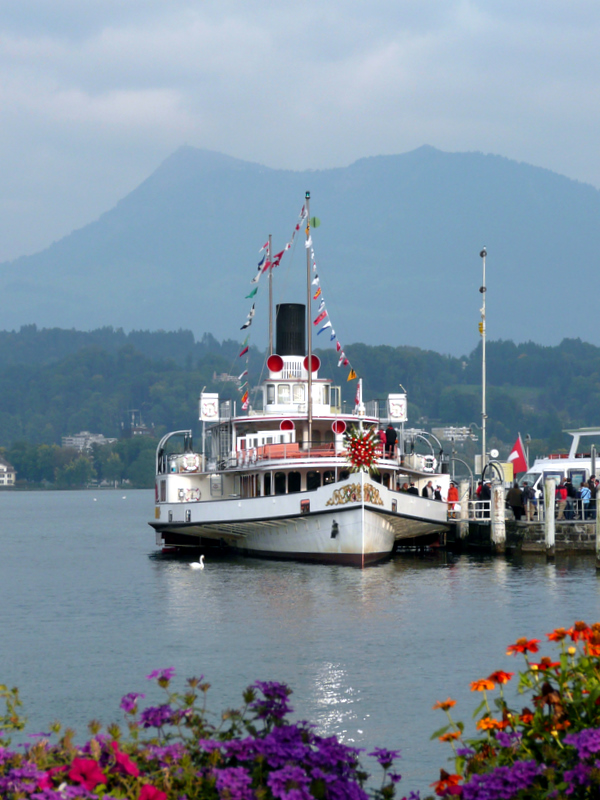
Switzerland is not a member of the European Union and, therefore, has border controls with all its neighboring European nations. However, if your stay is shorter than three months you only need to bring your valid passport with you. This applies to citizens of the following countries: countries of the American Continent (except Belize, Dominican Republic, Haiti, and Peru), Europe, Japan, Australia and New Zealand.
Obtaining a US passport
The US Government Website is where to start.
Visa information
You can apply for visas at your nearest Swiss Consulate General.
American Offices
American Consular Services are available in Bern, Geneva, and Zurich. Any should be able to handle most tourist queries, although take note as the appointment policies vary per office.
Us Embassy
Sulgeneckstrasse 19
3007 Bern
Tel.: 031/357 70 11
Monday through Friday 09:00 to 11:30
No appointment required except Wednesdays
American Citizen Services – Zurich
Dufourstrasse 101
8008 Zurich
Tel.: 043/499 29 60
Monday through Friday 10:00 to 13:00
Appointment required
American Citizen Services – Geneva
Rue Versonnex 7
1207 Geneva
Tel.: 022/840 51 60
Monday through Friday 10:00 to 13:00
No appointment required
Switzerland Tourist Information
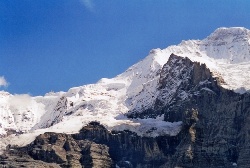 Culture and History
Culture and History
Switzerland is one of Europe’s oldest inhabited countries, with evidence of hunters living here before the last ice age. With a population of approximately 7.8 million, Switzerland is landlocked and bordered by the countries of Germany, Italy, France, Austria, and Liechtenstein. It is one of the richest countries in Europe and is not a member of the European Union (EU).
The website History of Switzerland describes the country’s transformation from the home of a Celtic tribe to the medieval Swiss confederacy to the modern Swiss society.
Currency in Switzerland
Because Switzerland is not a part of the Eurozone, it has retained the Swiss Franc, abbreviated CHF. Cash machines (ATMs) are available throughout the country and credit cards are accepted almost everywhere. While Swiss banks do not charge fees for foreign credit cards, be aware your bank might. Be sure to have Swiss Francs available during your stay, because it is somewhat easier to use cash than credit cards as compared with other European countries.
Driving in Switzerland
The roads in Switzerland are of high quality and are well maintained, offering an opportunity to drive through some of the most scenic portions of Europe. Speed limits are very strictly enforced and even driving 5km in excess of the posted limit could get you fined. Excessive speeding will result in a mandatory court appearance. Your car rental will be fitted with snow tires or snow chains for obvious reasons. Be forewarned that driving in Switzerland is an expensive experience; because of the country’s green-minded policies, driving is heavily taxed at all opportunities, especially for things like parking in main cities.
Electricity in Switzerland
Electricity is 230volt/50Hz and takes continental European two-prong plugs. Swiss plugs technically have a slightly different standard but both Swiss and Euro plugs work fine. Make sure your appliances can accept the higher voltage of power (American outlets provide 120 volts) or you’ll need a converter and an adapter. Some appliances and computers can accommodate either 120 or 220 volts, either automatically or with just the flip of a switch on the appliance. (Check it out before you buy.)
Emergency Numbers
In an emergency, dial 117; the operator will direct you to police, ambulance, or the fire department based on your situation. If you know you need an ambulance, dial 144.
Etiquette in Switzerland
Switzerland is clean to a fault so respect the tidiness and don’t litter. The culture is overall conservative – ostentatious or drunk behavior is not welcome. In meetings, use a person’s title and last name until invited to do otherwise. Be punctual – train services have been known to run to the exact second.
Public Hours in Switzerland
Shopping hours Monday-Friday are typically 8:30AM – Noon and 1:30PM – 6PM. Saturday stores are only open from 8AM until Noon and open again 1:30PM – 4PM. All shops are closed on Sunday.
Safety in Switzerland
Pickpocketing has increasingly become a problem in Switzerland, particularly with tourists wearing brand new watches or jewelry. Police do not make their presence hugely known but rest assured they are available when needed.
Time Zone
Central European Time (CET), which places the country on the same time as cities like Paris, Amsterdam, Frankfurt, or Rome. It is one hour ahead of Ireland and the UK.
Tipping in Switzerland
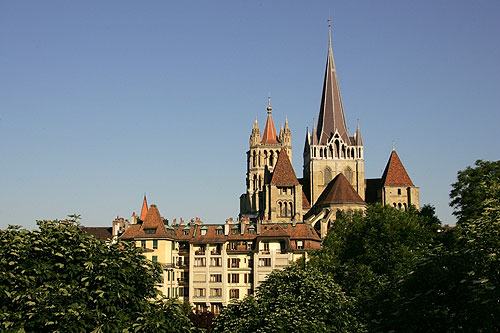 Service charges are always included in Switzerland. Rounding up the bill is common if the service was outstanding.
Service charges are always included in Switzerland. Rounding up the bill is common if the service was outstanding.
Weather in Switzerland
Being one of the most mountainous countries of Europe, weather can vary somewhat – on the southern side of the Alps, weather is slightly warmer than on the north side. The Alps form a strong weather barrier, so be sure to check the forecast for the region you’re visiting. Even during summer there will be snow and frosty weather up in the mountains.
Getting Around Switzerland
Air Transportation
Most travelers will arrive into either the Zurich airport, Geneva airport , or Basel airport. Choose your arrival airport wisely – while internal train service is excellent, it can be expensive and add time to your journey.
Bus
For most routes, you’ll be treated to the pleasure of the bright yellow PostBus, which offers connecting service from the mainline train routes into the most remote destinations. PostBus is also used as a local courier service, delivering postal mail along with passengers.
Rail
The national Swiss rail operator is Schweizerische Bundesbahnen (SBB). Rail service is frequent and of high quality; travel through the mountains is scenic and the best way to sit back and take in all the sights. Keep in mind, reservations are required on almost all routes and some trains (particularly the ‘scenic’ tourist routes) are always quite full. Routes popular with commuters are unfortunately quite expensive.
Car Rental
Car rental companies are the standard set of brands, and it is recommended to make your booking before leaving home. A U.S. driver’s license alone is not sufficient to drive in Switzerland. The U.S. driver’s license must be accompanied by an international driver’s permit. Third party insurance is mandatory for all drivers in Switzerland.
Taxis
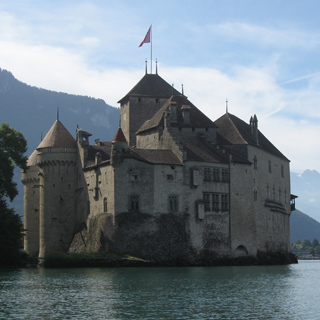 Taxis can normally not be hailed off the street; you must go to one of the taxi stands located throughout a city. For a rural pick up or door-to-door service you must phone ahead; your hotel or accommodation can do this for you.
Taxis can normally not be hailed off the street; you must go to one of the taxi stands located throughout a city. For a rural pick up or door-to-door service you must phone ahead; your hotel or accommodation can do this for you.
Health
The Swiss health care system is considered to be the best in the world – and with that prestige comes a price tag. Your own health insurance should cover any basic medical care costs. English-speaking doctors (or doctors speaking any other language, in fact) can be easily found.
Personal Medications
No permit is required to carry medication in your luggage. However, you should pack your medication in its original containers and/or have your doctor’s prescription with you. Customs officials will have to be satisfied that you are not importing more than would be necessary for your personal use, taking into account the drug type and length of stay (for no more than three months).
Lodging in Switzerland
From Swiss chalets in the mountains to luxurious lodges in the cities, tourists are treated to top notch facilities throughout all of Switzerland, priced accordingly. Pay attention to what your reservation covers – often breakfast or other amenities will come at additional cost. Regardless, you get what you pay for, but even in budget accommodations you’ll get the highest Swiss standard of cleanliness and hospitality.
Main Sights in Switzerland
Lucerne tops many lists for its gorgeous lake-side location. From the village it is also easy to access Mount Pilatus and take a short walk through the surrounding mountainous region. The towns surrounding Lake Geneva – Geneva , Lausanne, and Montreux-Vevey are also excellent cities to explore.
Public Holidays in Switzerland
New Year (1 Jan)
Good Friday
Easter Monday
Ascension Day
Whit Monday
National Day (28 May)
Christmas Day (25 Dec)
Boxing Day (26 Dec)

Telephones in Switzerland
Dialing Procedures
To dial a number in Switzerland from the USA, dial ‘011’ plus the country code of ‘41’. Drop the ‘zero’ in front of the city code (e.g. 01 for Zurich, 031 for Bern, 022 for Geneva) and then dial the rest of the number.
Example (Geneva): +41 22 310 4444
To dial a number while in Switzerland, keep the city code (including the zero) regardless where you are as it is part of the phone number.
Useful Country Codes:
USA and Canada 1
UK 44
Returning to the US
Customs,VAT & Duty Free
When returning to the U.S., you’ll need to declare everything you brought back that you did not take with you. If you are traveling by air or sea, you may be asked to fill out a Customs Declaration Form provided by the airline or cruise ship. Keep your sales slips. Try to pack the things you’ll need to declare separately. Read the signs in the Customs area; they contain helpful information about how to clear Customs. For complete information on Customs, look at the U.S. Government Customs Website
Value Added Tax (VAT) Refund Information
We have found it such a hassle to try to reclaim the VAT tax that we simply do not bother. If however, you will be spending a great deal of money, it might be worth the many steps you will need to go through. Also, remember that a 7.6 percent V.A.T. (Value Added Tax) tax is added to rates for all restaurants and 3.6% for hotel rooms. Service is included. This V.A.T. tax on services is not refundable.
Travelers to Switzerland from outside the EU are entitled to a reimbursement of the 7.6% V.A.T. (Value Added Tax) they pay on all non-travel purchases as long as the purchases add up to no less than 400 CHF in the same store and on the same day. The vendor must provide the purchaser with a duly filled out invoice which includes the price of each good, the V.A.T. paid for each item, as well as the identification (name and address) for both vendor and purchaser. The goods must be brought out of the European Union within three months from the date of purchase.
At the time of departure Switzerland and final departure from the European Union territory, and before checking in your baggage, you must bring your invoice(s) and the merchandise purchased to the Swiss Customs in order for them to process your V.A.T. refund claim (there is a specific booth for this purpose just prior to the entrance to the international area at the international port, gate or airport).
Duty Free
If you are a U.S. or Canadian resident, you may qualify for a personal exemption which allows you to bring goods of a certain value into the country without paying customs duties, excise taxes, or Value Added Tax.
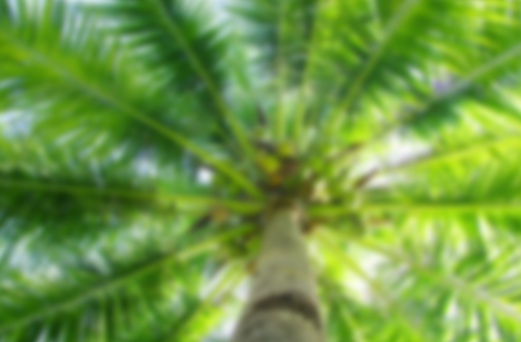

Comments